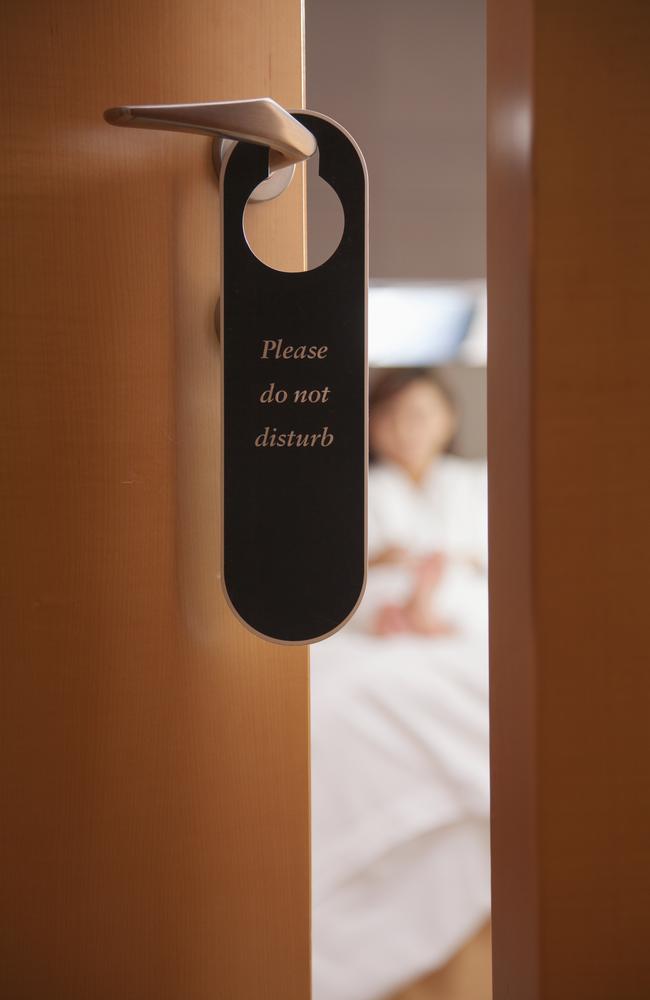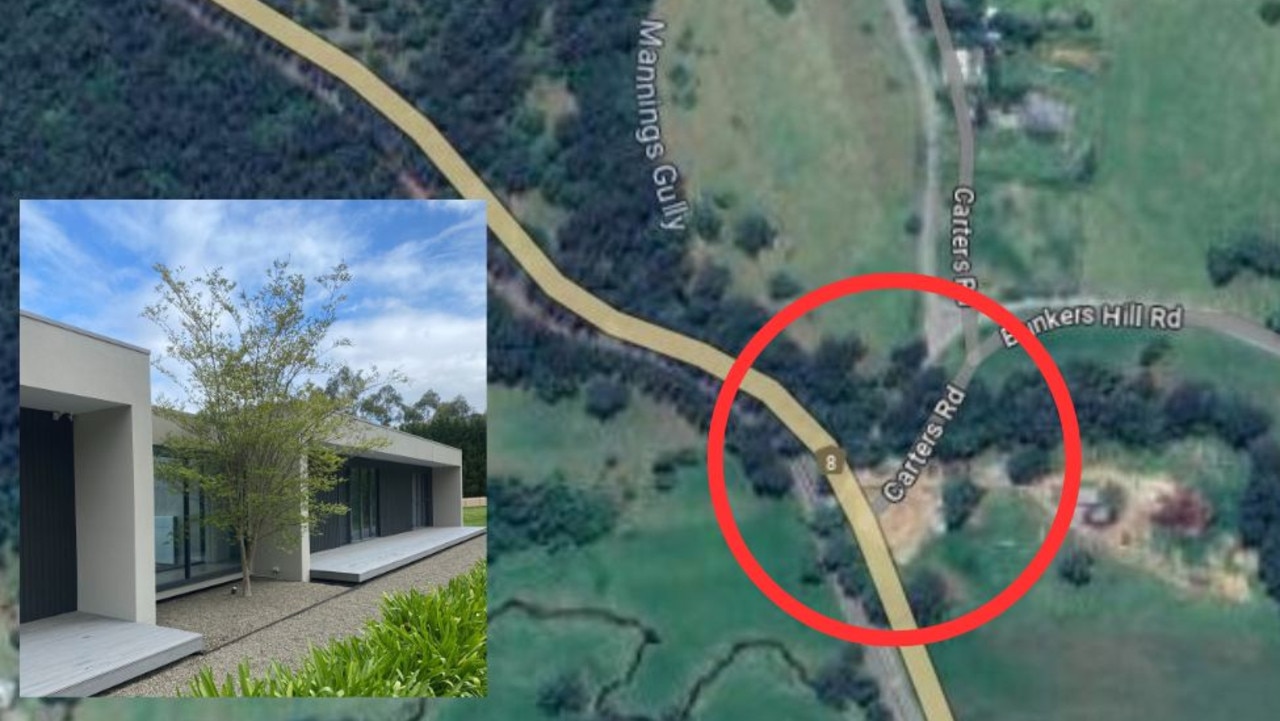Dead bodies, meth labs and seven other secrets hotels are keeping
METH labs, dead bodies, and don’t even think about using the pool! Here are nine things that hotels really don’t want you to know about.
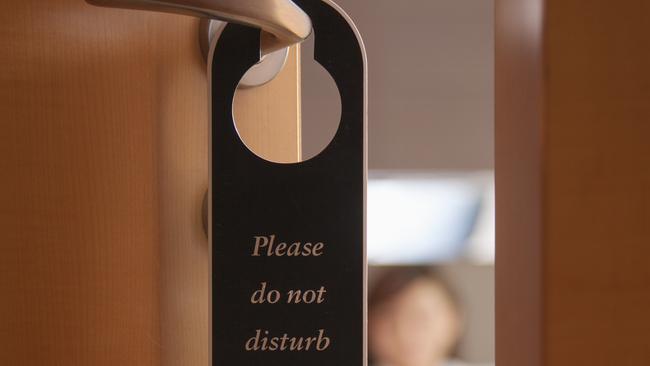
WHAT exactly took place in your hotel room before you arrived?
How clean is your bed? And is the guy next door paying less than you?
In most cases, the hotel doesn’t want you to know. We went looking for answers. Here are the nine things hotels do not want you to know about your room and how they operate the business.
People die
Sudden deaths can happen anywhere. It is so common that a recent article in Lodging Magazine addresses suicide prevention for hotel managers. In most cases hotels follow a “clean up and shut up” approach, making it hard to get statistics about how often room deaths occur.
We turned to Snopes.com hoping to debunk the oft-told story about a body found under a hotel mattress, but instead found that they label this story true. Apparently, it happens frequently. Lift that mattress before you crawl into bed, people!
People commit crimes
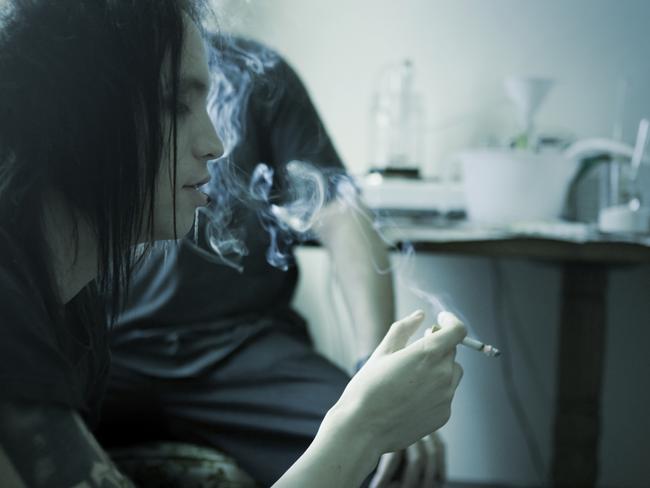
It’s no surprise that drug use and distribution happens in hotel rooms, but according to the Drug Enforcement Administration in the US, hotel rooms are also becoming a prime place for quickie meth labs. The cookers check in, cook their batch, and leave toxic waste behind without risking damage or detection where they live.
Here’s a fact sheet to help identify the signs of a meth lab, and claims labs turned up in more than 1300 hotel rooms in 2013. The real question is whether a hotel is willing to spend the extra money required to make those rooms safe again.
Don’t trust that scent
How many times have you walked into a hotel room and thought it smelled like a department store perfume counter? That’s your clue to ask for another room. A slight scent of cleaning chemicals is normal, but perfume could indicate a cover-up — or even a marketing ploy.
Hotels use fragrance machines when it comes to both stubborn odours (like bodies under the bed, perhaps?) and creating a fragrance “image” designed to keep you coming back.
Guests leave scary things behind

Besides toxic meth-cooking chemicals, ordinary guests leave dangerous things behind. Think loaded guns, illegal drugs, and even prescription pills. One would hope that good housekeeping eliminates most of that, but “most” is the key word.
A detective we spoke to said anytime she checks into a hotel room, she lifts the mattress looking for weapons. She also looks inside smoke detectors and tissue dispensers for drug stashes.
There will be pests
Bedbugs are the pests most people worry they’ll find in a hotel, but plenty of other yucky pests could be sharing the room, too. Fleas and ticks are a definite possibility in pet-friendly rooms. Roaches seem to be the most mentioned critter on hotel review sites.
But even a search for the word “scorpions” on TripAdvisor turned up more than 3000 reviews mentioning these scary night-crawlers in hotel rooms.
Cleanliness is not job one
Reneta McCarthy, senior lecturer, services operations management at Cornell University School of Hotel Administration said while “cleanliness is critical to a successful hotel,” the very fact that housekeepers are tasked with cleaning 14 to 16 rooms in an eight-hour shift — and at low wages — makes it possible that a room may look clean without actually being sanitary.
“It isn’t a glamorous job,” she says. “If you had a choice of working at a grocery store or at McDonald’s versus cleaning hotel rooms, what would you do?” Sheets, towels and toilets may be the only things in your room truly sanitised. McCarthy specifically mentions the mattress pads and the floor around the toilet as problem areas.
Think twice about the pool
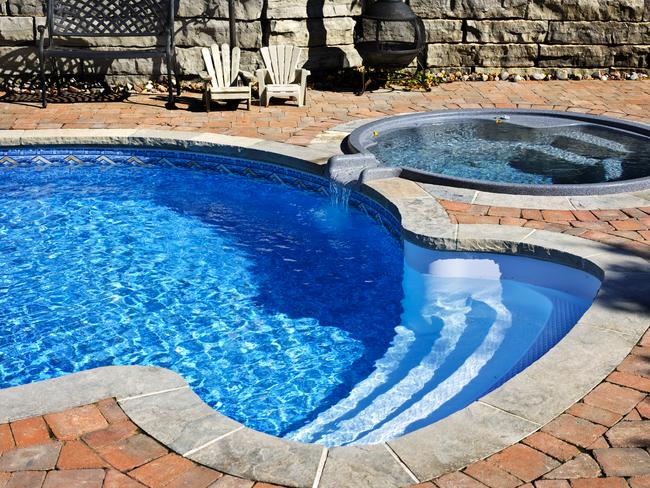
In fact, think twice about anything in a hotel that doesn’t actually generate income. Pools and workout rooms are secondary to the primary goal of profitmaking, so their maintenance moves down the priority list a bit.
There have been closures forced by health officials. The reasons? Positive bacteria tests and dangerous chemical levels, to name a few. And it isn’t just about the water.
A report from the CDC showed that poorly ventilated indoor hotel pools can also pose a risk to your health.
Hotel taxes bring more tourists
Consider this: Your hotel may have helped decide how much tax you pay for the privilege of staying there. Organisations at the state and national level employ high-powered lawyers and lobbyists to ensure that as many laws as possible work in their favour — not yours.
In the case of taxes, organisations like the American Hotel and Lodging Association are often advocates for taxes where the funds are earmarked for the promotion of tourism.
Nobody pays the same rate
Yahoo Travel’s research often turns up rooms that rent for $650 a night during a peak season or special event but that can drop as low as $116 for a last-minute, off-season stay. Companies like Duetto Research offer services that help hotels manage their rates down to the minute.
Rates can be set to adjust to things like an increase in airline ticket sales in the area or even the weather.
That means you could be paying more for a hotel room on a sunny weekend than you would have if the skies were overcast.
This article originally appeared on Yahoo Travel and was republished via the NYPost.
